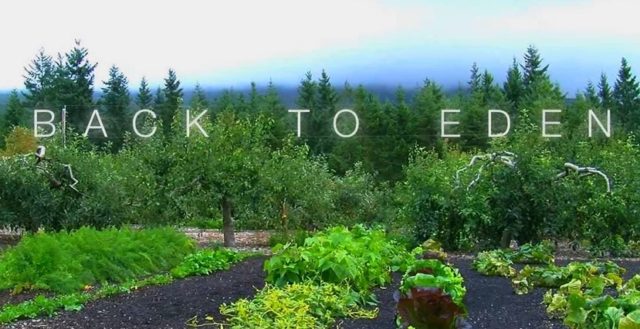Have you ever read a book on conventional gardening methods and wondered if you should even bother? Is it really necessary to till the ground, measure the pH of soil, and add soil amendments and N,P,K fertilizers? If you knew there had to be another way, you are right. None of that junk is necessary, and gardening is easy, fun, rewarding, and very low maintenance.
Conventional gardening methods are laborious enough to make anyone say “ain’t nobody got time for that,” but Paul Gautschi has the answer and has shared his gardening method with the world. Paul’s method doesn’t require digging or tilling and is so low maintenance that he hasn’t even watered his garden in 34 years. His plants have very high yields and are packed with nutritious, flavorful minerals.
“Listen to these numbers,” Paul tells Maximum Yield. “On the test, you get two lines: the desired level that you want and your lab results. The nitrates: the desired level was 40; my lab result was 120. Phosphorous, the desired level is 174; mine is 2,345. Potassium, the desired level is 167; mine is 1,154. Coming down to the smaller numbers: Zinc, the desired level is 1.6; mine 21.5. What I love about this is [that] I didn’t do anything.”
Paul’s growing methods are what those of us who thought there should be a system that works naturally have been looking for. Paul uses wood chips as mulch, and he uses them generously around his whole garden taking care to only use them on top of the soil and not to mix them in with the dirt. The mulch protects the plants from harsh weather, keeps the soil loose and moist, provides food for microbes, and fertilizes the soil once it is broken down by the microbes.
Paul’s growing methods are documented in the movie titled “Back to Eden”. Back to Eden is more than just a gardening documentary. It is an earth love story that shows how to restore depleted soil and concrete jungles to lush landscapes. It documents families who started gardening to feed themselves and schools that turned cement into gardens, allowing children to participate in growing food.
Paul’s method recycles waste from landscapers. It is similar to forest permaculture where leaves and debris from trees provide mulch for food growing in a forest. Eden gardening is fueled by the poetic, natural circle of life — dead matter decomposes and provides nutrients for new plant growth.
Paul’s methods can feed the world without herbicides, pesticides, or GMO’s. They have been successful year-round in different climates throughout the world. Eden gardening uses 95% less water than conventional gardening.
Back to Eden was released in 2011 and can be viewed for free at www.backtoedenfilm.com. Now that you know the benefits of playing in the dirt and the easiest way to grow fruit and veggies, we hope you will share your gardening tips and experiences in the comments.








Friends gave me grapefruit loquat lemons tangelos an bitter oranges. I saved the seeds an have over 100 saplings. Funny thing. I had a couple of store bought oranges wilting in the crisper and decided to open them up n plant the seeds. To my surprise they were seedless
I’m a big fan of this method. Great post! One point that is often overlooked is that Gautschi doesn’t mulch with “just wood chips”. The mulch he obtains from tree services also contains lots of green material (leaves) which adds nitrogen and helps the wood chips break down. This fact is covered in the film and other “BTE” materials but it seems some people miss it.